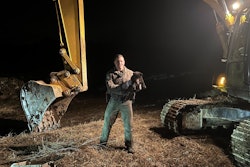
It’s time to stop and assess time-management skills and develop strategies to better manage both time and workload. Here are some target concepts to keep in mind with the changing times.
Organizational skills
If you have a lot on your plate, make sure you know how to find your fork. A lack of good organizational skills will add many hours to your workweek. Anywhere you work – your office, truck, home office – should be conducive to a streamlined, productive flow.
I’ve heard people say they work better in a disorganized state and under pressure. What that really means is that’s how they’re comfortable working – it doesn’t mean they’re faster or more productive. They’re not. If you’re this person, it’s time to change.
I could post links to any of the couple hundred thousand articles on organization, but organization is not one-size-fits-all. Find what works for you, and make it a habit. Take baby steps to start, if you must.
For example, put your keys in the same place every single day. If you can pick them up immediately instead of spending, say, an average of 2 minutes looking for them each workday, you’ll save more than 8 hours a year.
Use the same technique for other daily time wasters and be amazed at the hours you gain. Remember, repetition is your friend.
Urgent vs. important
These aren’t the same thing. Learning the difference between them is the difference between prioritizing properly and mishandling multitasking. If you find this is a hard distinction to make, you can use a matrix approach to classify tasks until you get the hang of it.
Find matrix examples here and here. If you have micromanagement tendencies and find yourself immersed in the minutiae of each phase of every project, you might want to consider familiarizing yourself with the Pareto Principle, also known as the 80/20 rule.
The theory behind this is that 20 percent of all possible actions will achieve 80 percent of desired results. Performing a Pareto Analysis when you know you will have limited time or resources to work with will help you determine which tasks will allow you to meet your main goals.
True leaders delegate
You may be a good manager, but you won’t be a great one until you learn to delegate. Not only will delegating free up time for you, but it will allow your employees to take on new responsibilities that make them feel valued. Don’t know how to let go? Here are some items you should start delegating to others right away:
Tasks you’ve already mastered. If something has become rote for you, let someone else give it a try. They might bring something new to the table.
Tasks that will prepare your employees to advance. The best managers are those who allow their workers to develop the skills they need for the next level. Oh, and then promote them to that level.









